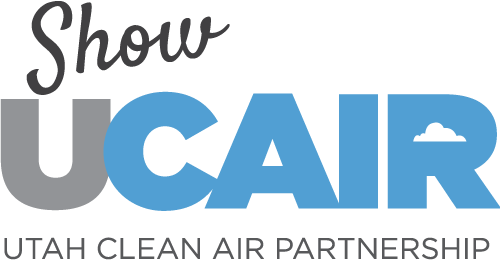During our August 2019 UCAIR partners meeting, we heard first from Ted Knowlton, Deputy Director of Wasatch Front Regional Council, about Wasatch Choice 2050. We then turned the time over to Ben Bolte with GREENbike. He gave us a presentation about the history and future of GREENbike.
Wasatch Choice 2050 – Ted Knowlton, Deputy Director, Wasatch Front Regional Council
Wasatch Front Regional Council (WFRC) is the designated metropolitan planning organization for the Wasatch Front. WFRC is responsible for coordinating the transportation planning process. The idea behind Wasatch Choice 2050 (WC2050) was to get local input on the future of transportation, planning, and development in the Salt Lake Valley. During the WC2050 process, potential scenarios for the future were put forth, as well as the trade-offs associated with different approaches to transportation and land-use investments. These trade-offs are evaluated, with stakeholders playing an essential role in selecting the appropriate path forward. WC2050 identifies specific transportation projects and investments, the use of land near those investments, and associated economic development strategies to achieve desired outcomes. WC2050 also provides recommendations and resources to help stakeholders achieve those outcomes. The WC5050 vision operates on four key strategies which represent the overarching theme of the project:
- Provide transportation choices, offering better access to transit and active transportation.
- Supporting housing options, allowing for more choices.
- Preserve open space in our community.
- Link economic development with transportation and housing decisions.
In addition to the critical strategies listed above, ten regional goals were adopted by WFRC in 2016 and are the desired outcomes of an adequately implemented WC2050. These goals inform essential decisions regarding future transportation investment, the use of land and economic development opportunities. One of the goals of WC2050 is clean air. Cars contribute a large percentage of air pollution along the Wasatch Front. Reducing vehicle miles and especially eliminating short trips helps air quality by avoiding a cold start. WFRC has identified six strategies to reduce vehicle trips:
- Local street connectivity: Other benefits of regional street connectivity include shorter driving distances and reduced traffic delays.
Family-friendly bike infrastructure: Providing access to safe bike infrastructure is critical in increasing the number of people choosing this active transportation option. In a survey conducted by WFRC, 70% of respondents said they would like to walk more, 53% would like to bike more, and 46% would like to take transit more. - Strong centers: Planning for dense forms of development in strategic places will provide choices, preserve suburban and rural lands and benefits housing affordability.
- Modern parking: Creating parking lots and spaces that utilize space more effectively.
- More investment in public transportation.
Go to Wasatch Choice 2050 website for more information.
Future Initiatives of GREENbike, Salt Lake City’s Non-Profit Bike Share System, and the Micromobility Landscape – Ben Bolte, Executive Director, GREENbike
GREENbike officially launched as a non-profit in 2013, after years of research, planning and fundraising. On average, each bike in the GREENbike network is ridden twice a day and each station averages 8,000 checkouts and returns each year. In 2019, GREENbike will expand their network by 70%. Including a new network in Ogden, extending the existing Salt Lake City network into South Salt Lake and new stations near affordable housing developments. Beginning in September 2019 GREENbike will offer an equity pass for $5 for 1-year for low income individuals, which can be purchased with cash, eliminating the need for a credit card or smart phone. This is a significant discount, as most annual passes cost $75. The number of annual passes purchased in 2018 increased compared to 2017. An additional benefit for annual pass holders is an extended checkout time of up to 12 hours at a time. Additionally, in August 2019 50 ebikes will be joining the fleet. To date GREENbikes have removed 5.3 million vehicles miles from our roads and prevented 2,250 tons of CO2 emissions.
PARTNER ROUND TABLE
Following the presentation, partners shared what projects and initiatives they are currently working on. These included:
Heidi Goedhart, Utah Department of Transportation – The Move Utah Summit is being held on September 26. The summit will be focused on creating active, healthy, interactive communities across Utah. Planning infrastructure and location will also be addressed.
Karson Eilers, Utah League of Cities and Towns – They are having a large annual summit with officials in September focusing on moderating transportation and housing connections for planners and local governments
Bonnie Christiansen, Weber State University – The annual Intermountain Sustainability Summit is in the planning stage. Speaker proposals will be accepted from September 2 until October 22. WSU is also hosting a lightbulb exchange program September 7 through November 16. Approximately 4,000 lightbulbs in the Ogden area will be exchanged.
Thom Carter, UCAIR –
- Clean Air Caucus will meet on Wednesday, August 21.
- United Nations Civil Society Conference will be held August 26-28.
- Utah Clean Energy’s Party for Clean Power is September 19.
- UCAIR relaunched the water heater program, which was popular and successful.
- The UCAIR grant LOI period has now closed. We have 26 submissions requesting $700,000. The board will review and make recommendations.
Please go to the UCAIR blog featuring partner meetings and the UCAIR community calendar for upcoming events.
NEXT MEETING: September 13, 2019, 9:00-11:00 AM

